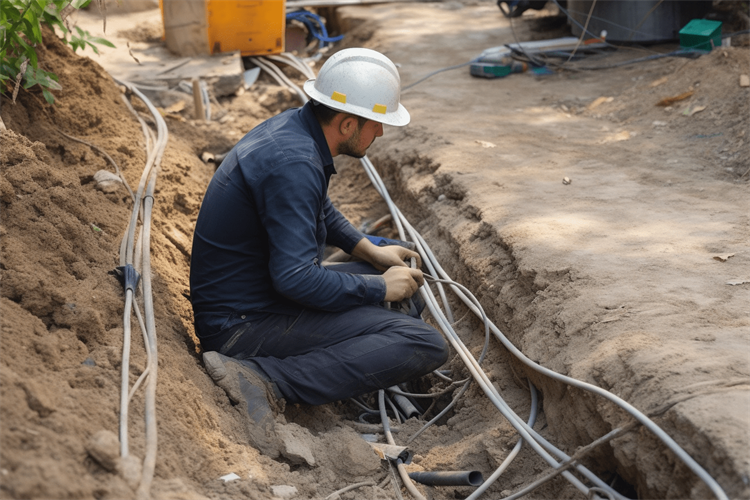connect with us online
Follow us, tag us, or like us. We want to interact with you!
Truvista Fiber is making the move to paperless billing on December 1st. Learn More.
Welcome Sylvester, GA residents! We’re proud to serve you with local support and reliable connectivity.

As technology advances, our need for faster, more reliable Internet connections continues to grow. Truvista’s fiber-optic internet, with its remarkable speed and reliability, has become a sought-after solution for many. If you're anticipating the arrival of fiber in your neighborhood, it's helpful to understand the construction process and what to expect as a customer. In this blog, we'll delve into the fascinating journey of bringing fiber-optic internet to your doorstep.
The process of introducing fiber-optic internet to a neighborhood begins with meticulous planning and surveying. Telecommunication companies conduct surveys to evaluate the feasibility of installing fiber infrastructure. This involves assessing the existing infrastructure, potential obstacles, and the optimal routes for fiber cables.
Before the construction phase can commence, the project must obtain necessary permits and approvals from local authorities. This step ensures compliance with regulations and standards governing the installation of telecommunication infrastructure in a given area.
Once the planning and permitting stages are complete, the actual construction begins. This involves burying or installing fiber-optic cables along predetermined routes. Fiber cables are usually buried underground, either through trenching or by utilizing existing conduits. During this time, you will see locators identifying gas, electricity, water, and any other utilities that may be in the ground. They will spray paint on the ground where other utilities exist to assure safety and avoidance during fiber construction. You will then see crews and equipment constructing the fiber plant.
In some cases, aerial installation may be employed, where cables are strung along utility poles.
After laying the fiber-optic cables, the next step is splicing—the process of joining individual fiber strands together. Highly trained technicians use specialized equipment to ensure precise connections. This step is critical to maintaining the integrity and efficiency of the fiber-optic network.
For optimal performance, the installed fiber-optic network undergoes rigorous testing. Technicians use advanced testing equipment to measure signal strength, detect potential issues, and ensure that the network meets industry standards. This phase is crucial for delivering the high-speed, low-latency connectivity that fiber-optic internet provides.
Once the fiber infrastructure is in place and thoroughly tested, the final step is connecting individual homes to the network. When a customer places an order for service, Technicians will install a network termination point at each customer's residence, allowing them to access the high-speed fiber-optic internet.
What Customers Can Expect:
The process of bringing Truvista’s fiber-optic internet to a neighborhood involves careful planning, precise construction, and thorough testing. As a customer, you can anticipate improved internet performance, faster speeds, and a more reliable connection once your home is connected to the Truvista fiber-optic network. Stay informed about the construction timeline in your area or be alerted when fiber is coming to you, by visiting https://www.truvista.net/fiber-internet. The arrival of Truvista’s fiber-optic internet is an exciting step toward a faster and more connected future!
Follow us, tag us, or like us. We want to interact with you!